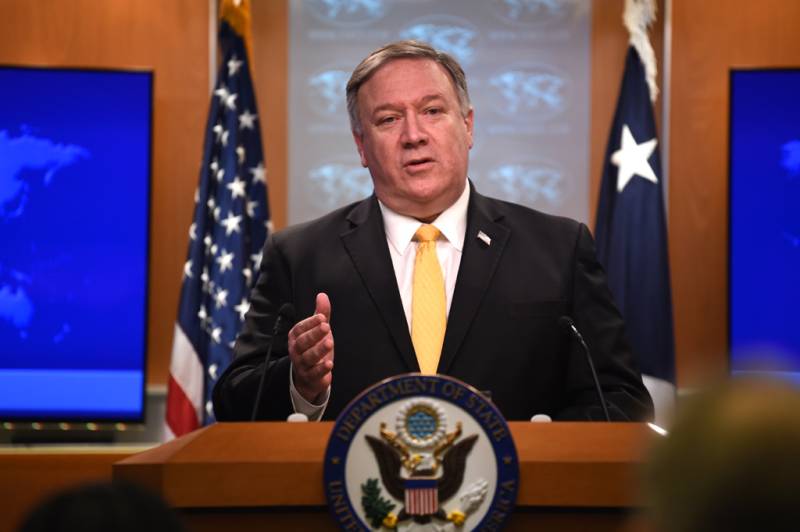Pompeo tells allies US still committed to fight IS
Shares

Washington: Secretary of State Mike Pompeo said Wednesday that the United States remained committed to permanently destroying the Islamic State group despite pulling forces from Syria, as he asked concerned allies to do more.
Pompeo offered assurances as top officials from 79 countries met in Washington on how to move ahead in the fight against the Islamic State movement, also known as ISIS, after President Donald Trump's sudden decision in December to remove all 2,000 troops from Syria.
"America will continue to lead in giving those who would destroy us no quarter," Pompeo said.
"We ask each of your countries to stand with us and, through our efforts and God's help, the day will come when the permanent defeat of ISIS is a reality," he said.
Pompeo, one of Trump's most stalwart defenders, described the troop withdrawal as "essentially a tactical change" as extremists scatter around the world.
"It is not a change in the mission," Pompeo said, adding "our fight will not necessarily always be military-led."
"We are entering an era of decentralized jihad so we must be nimble in our approach as well," he said.
- Trump pullout -
Trump, who will address the conference at the State Department later Wednesday, stunned many allies by ordering the troop pullout, although the US military has slowed down the pace of the exit.
In his annual State of the Union address to Congress on Tuesday night, Trump renewed his pledge to avoid "endless wars" and said that nearly all of the once vast territory held by the "bloodthirsty monsters" in the Islamic State group had been taken back.
But Trump's own intelligence chief, Dan Coats, has warned that the Islamic State group, whose once-mighty stronghold across Syria and Iraq is down to a narrow sliver of territory, would try to stage a comeback with a troop withdrawal.
Hoping to avoid the worst outcomes, Pompeo asked US partners to step up intelligence-sharing and also to make up a $350 million shortfall in a fund intended to bring stability to Iraq.
"Now is the time for all of us, not just America, to put our money where our mouth is," Pompeo said.
He also renewed calls on countries to take back foreign fighters -- a sensitive issue for allies such as France and Britain which see little upside to bringing home hardened jihadists, including militants behind videotaped beheadings that has sickened viewers around the world.
"Members of this coalition must be willing to take back foreign terrorist fighters, prosecute them and punish them," Pompeo said.
- Eyes on Turkey -
The Kurdish-led Syrian Democratic Forces, who were at the forefront of the battle that crushed the Islamic State's self-styled "caliphate," have warned that they may no longer be able to guard prisons housing foreign jihadists after the US withdrawal if Turkey attacks. - Turkish President Recep Tayyip Erdogan, who spoke to Trump before the pullout orders, has vowed to crush the Kurdish fighters in Syria, linking them to separatists at home.
Fears of a Turkish incursion have led to ongoing talks on setting up a buffer zone along the Syrian border.
Speaking in Washington, Turkish Foreign Minister Mevlut Cavusoglu pledged that Ankara would work to ensure that the Islamic State group does not rebuild.
"Avoidance of power vacuums that could be exploited by terrorists to undermine Syria's territorial integrity and neighbors' national security will be essential," said Cavusoglu, as quoted by the state-run Anadolu news agency.
Iraqi Foreign Minister Mohammed Ali al-Hakim also asked coalition partners to consider "the integrity of Syrian territory to maintain the great victory."
Foreign powers have largely come to believe that Syrian President Bashar al-Assad will survive the grisly, multi-fronted war in which more than 360,000 people have died since he put down protests in 2011.
But the United States and its close European and Arab allies in a joint statement in Washington said they still believed there was "no alternative to a political solution" in Syria.
APP/AFP
